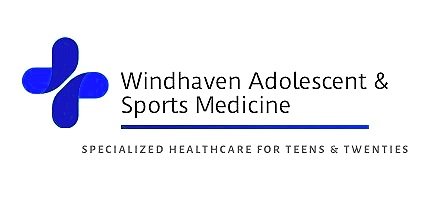
Headed to college?
Here are some health & safety tips to help you make the most of your college experience:
Your health & safety can change your college experience.
Make sure your vaccinations are up-to-date, including your meningitis vaccine. Bring a copy of vaccine record and any other important medical records with you to school. We are happy to provide you with a copy at no charge. Consider putting this and any important information onto a flash drive or take a photo or or scan the document with your vaccine record. If you have the MyChart app, you will be able to access your vaccine record and other health info on your phone.
Keep in mind that we reserve a week during the holiday break for college health only. Try to let us know as soon as you can if you think you will need to be seen on your break. If you participate in NCAA sports, let us know when scheduling your appointment. We have special times and dates for you to accommodate practice schedules. We occasionally do medical visits on local college campuses. Sign up on our local college list for and we'll notify you when we're planning a visit so you can be seen, if needed.
Feel free to call our office or send a MyChart message for health advice or prescription refills. We are happy to provide that service even when you are out of town. Some medicines cannot be called in and some prescriptions cannot cross state lines.
Consider getting an under-bed safe for any prescription medication you take. Theft of prescription medications is a sad but growing problem on campus.
AVOID THE FLU and COVID-19: The flu vaccine (now in nasal mist form) is usually available by August or September. Check our website to see if we have it in before you leave or with your college’s student health clinic to see when you can be vaccinated. Consider getting vaccinated for Covid-19 (Pfizer or Moderna) and talk to Dr.Scalfano about whether the booster might be helpful for you.
Keep antibacterial gel or lotion in your backpack and use it when you’re packing up after each class. Frequent hand washing is one of the most important things you can do to prevent colds and flu. During Covid-19 outbreaks, choose outdoor activities instead of inside ones and wear a properly fitting N95 mask if you need to be in an enclosed space with a lot of people (see your campus health advisories for up-to-date recommendations for your area).
Consider bringing an air purifier to use in your dorm room. Those with Hepa filters are good. Most dorms are old and dust, molds, and other allergens can cause numerous health problems, including sinus infections. The “white noise” they provide can also help you sleep in a noisy environment!
Get plenty of sleep. Maintain good study skills so that you do not have to “cram” or “pull an all-nighter”-this lowers your immunity against disease. If you have trouble sleeping for more than the first week or two of school, call our office. Also consider foam ear plugs to reduce noise while you sleep (brands like Hearos are comfortable and inexpensive).
Find your school’s gym and stick to a regular exercise program. Consider putting an exercise class in your schedule-this helps to keep you motivated for regular activity. Studies show that college students with regular gym attendance had higher GPAs!
Feel like you have “the blues” or are you down a lot? Depression is common among college students. If this feeling doesn’t go away in a few weeks or if you are so sad that you are thinking about hurting yourself, see a school counselor (available in most colleges) immediately and/or call our office.
The #1 cause of death amongst college students is car accidents. These are often associated with drinking or drug use. Try to take school transportation, when offered and NEVER, EVER drive after you have been drinking or ride with someone who has.
Safety First! Always walk with a buddy after dark or if walking in a secluded area of campus. Most campuses have escort services so that you can have someone walk you back to your dorm or car after a late class or a late night at the library.
When attending group functions, bring your own drink container with a closed lid/straw which can reduce the chance of someone tampering with it.
The "freshman fifteen"? It's usually a result of that perfect storm of staying up too late (and adding meals), no regular exercise or sports, and consuming alcoholic beverages. Know how to eat healthy in the cafeteria or sorority/frat house: know what portions of foods are recommended in a "serving". Resist the urge to eat more than you need because you worry about getting back to the cafeteria before the next meal. See our list of healthy dorm snacks and mini-meals.
If you're 18 or older, consider signing some legal forms to give your parent permission to handle your financial affairs and be able to get medical information in the event that you become ill. After 18, parents can not even be informed if you are hospitalized! Forms like a healthcare proxy and durable power of attorney are state-specific and available at many legal websites like www.legalzoom.com and www.mamabearlegalforms.com.
We’re so excited for your adventure ahead! Remember that we are here for you and you can message us at anytime. Telemedicine visits for college students are popular and may be helpful for minor illnesses. Stay safe and don’t forget to CALL HOME!
